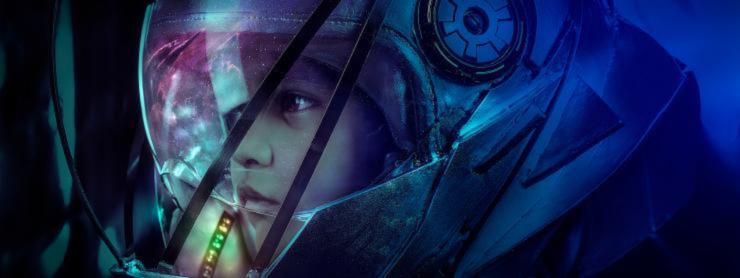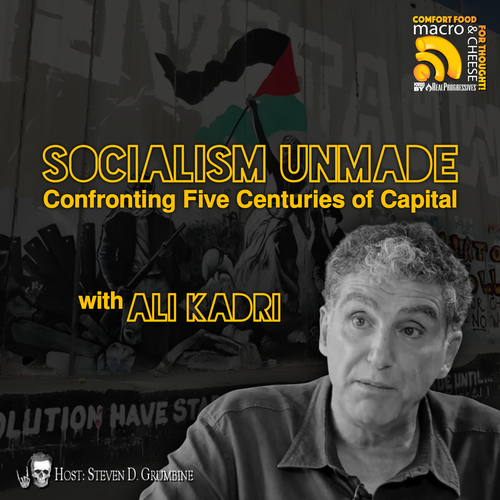There is a common belief that if we could somehow time travel to the past, making one small change could drastically alter the present day. Pick a random apple in the 1600s, and there’s a chance it would be the apple that fell on Isaac Newton’s head. If that apple did not fall on his head, he might not have written so prolifically about gravity and might have focused on other scientific pursuits. Each of us can think back to at least one pivotal moment where a different path could have led to a completely different life. What if I had taken that job as a hotel cook right after high school? I would have moved, made different friends, loved different people—maybe I’d end up as a completely different person.
It’s easier to imagine our past than to predict the future. Naturally, it’s easier to look back and see where the pivotal change was than to guess where the next one will be. Our perception of things dictates how we understand them. We can’t see the future, so we don’t know which choice will lead to that dream job we’ve always wanted. We can only put in time and effort and hope for the best. Some people believe that only their perception matters and that the world exists exclusively in their consciousness. This ideological outlook is called idealism, and it is not a fringe worldview. The belief that the only important things are you and your family is a core principle of the American dream and always has been. Manifest destiny and slavery were examples of white people doing whatever they pleased without regard for how it affected others.
There is an ongoing opioid epidemic, and alcoholism is commonplace. Most people can’t even start their day without a massive cup of sugar and caffeine. Perhaps a little moderation might do some good for a lot of people.
Idealism is not always extreme; it can be very subtle. When we see the world as something that can only be observed, we relinquish our ability to improve it. Believing we can’t significantly change the future is very common. Giving up hope that the problems we live with will ever be solved is something we hear people talk about all too often. These both stem from viewing the world solely through what we see in front of us and not observing the material world in its entirety. Idealism isn’t always bad. Stoicism has had a resurgence in the past decade; while it admits it can’t change the world, it seeks to change our relationship with the world. One of Stoicism’s core tenets is temperance; it’s about not overindulging.
Idealism is part of the default worldview we were given in school. It was ingrained into us without us, or the people doing the indoctrinating, even understanding what was being passed on to our young brains. Mindlessly reciting the pledge of allegiance without understanding what it was about affected the way we see the world. But we don’t have to be slaves to our own perception. We can take other people’s viewpoints into consideration. We can examine our impact on the world around us and understand that the world existed before we did and will continue to exist after us. The belief that the material world exists independent of our perception of it is called materialism. When viewing the world through this materialist lens, we can see exactly how wrong idealism is. The future is shaped by the present, and the present was shaped by the past. When we study history through a materialist lens, we can see that there have always been injustices and there have always been popular forces in opposition to those injustices. Change is inevitable, even if we can’t perfectly guess what that change will affect. If we talk to other people, we’ll find they have the same problems we do. When enough people get together, they can develop solutions for themselves.
The material world around us is made up of the things that came before it. Because that apple fell on Newton’s head way back in 1666, we have our current understanding of the world. We can defy gravity and even leave the earth’s gravitational field entirely. The things we do today affect what could happen tomorrow. Not everyone is a brilliant person like Newton; most of the people responsible for his ideas spreading and developing further were ordinary laborers. Working-class people ran the printing presses and taught his ideas in schools and universities. Workers spread their understanding of phenomena that, while intangible, can still be interacted with and understood. Researchers and engineers used that knowledge to develop higher, more structurally secure buildings and bridges. Understanding gravity was essential in pioneering flight and space travel. Working-class people are the ones who made history happen.
Finding a position where we can be part of the next leap forward is difficult. We need to start by not giving up and falling into hopelessness. We must remember that when workers unite, we can accomplish incredible things. We can build massive structures that stand for thousands of years. We can build planes that fly through the air. We can eradicate poverty and homelessness. But we can only achieve these incredible things if we believe we can, and only when we work together. Stoicism can be helpful to the individual, but it lacks the gumption to challenge the status quo and doesn’t attempt to change things for the better. The fact that Stoics can promote their ideology and get other people into Stoicism is proof that we can influence those around us. Idealist philosophy places us as simply observing and reacting to the world, not taking an active role in its development. Materialism, by contrast, gives us control over the future we collectively share. Disregarding our ability to influence the world around us robs us of our agency in that world. This is what Karl Marx had in mind when he said, “The philosophers have only interpreted the world in various ways. The point, however, is to change it.”
The world is changing right before our eyes. Not only can we guide that transformation, but our very presence in that change means we control its direction. If we traveled back in time, we could change the present, but we don’t need science fiction or imagination to change the future. All we need is to study the world, its history, and our impact on it to understand what the future holds. Too many people think that things will never get better. But the people who commit injustices will be defeated. All things eventually end. The Roman Empire had a beginning, a middle, and an end. Feudalism had a period where it was the dominant economic model, but that phase in history had a beginning, a middle, and an end. Capitalism and the United States Government have had a beginning, they have had a middle, and they will have an end. Will we fight to preserve a dying empire, or help build our community and keep it safe from harm?










